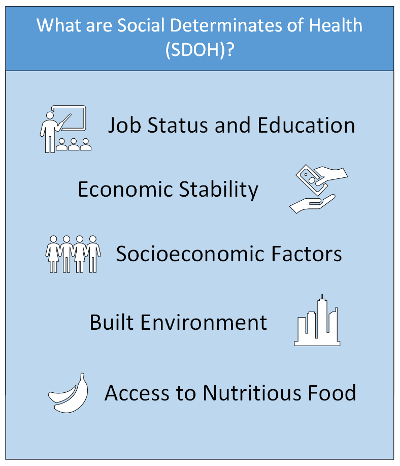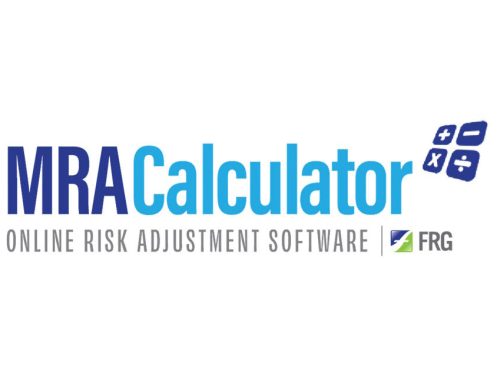On April 10th, 2023, the Centers for Medicare & Medicaid Services (CMS) proposed to change the severity of the three ICD-10-CM diagnosis codes connected to homelessness from “non-complication or comorbidity” (NonCC) to “complication or comorbidity” (CC). This proposed change would be a step towards health equity, as comorbidities and socially complex issues, like homelessness, contribute to patient health outcomes. Additionally, the reclassification would enable MA plans to receive additional reimbursement funds for patients who fall under the CC classification.
Wider acceptance and adoption of value-based healthcare models has no doubt contributed to these changes. The value-based care model requires a more robust, holistic documentation process than traditional fee-for-service models, prioritizing code specificity which fully captures the health causes and conditions of patients. More changes like this are expected, as studies confirm a strong link between Social Determinates of Health (SDOH) and patient health issues.
In this article, we take a closer look at Social Determinates of Health and CMS’s proposed updates to HCC coding following 2023.
A Short History of Social Determinates of Health (SDOH)
SDOH are non-clinical factors that influence one’s health, including socioeconomics, access to food, one’s living environment, healthcare habits, and accessibility to care.

Access to safe housing is just one SDOH. Others include access to transportation, exposure to racism or other forms of discrimination, a history of violence, prior education, income, access to nutritious foods, air and water quality, and language skills. When people do not have enough m
oney for healthy, nutritious food, their long term health suffers. Similarly, access to gyms, education, and transportation can all contribute to one’s health status.
The history of SDOH can be traced back to the 19th century as a response to the worsening health conditions following the Industrial Revolution. The US has been slow to acknowledge and act on the ways in which social factors contribute to health outcomes. Nevertheless, the World Health Organization (WHO) has made great progress grounding their efforts to further push SDOH into public awareness and encourage policymakers to support changes to healthcare since the early 2000s.
Following the Covid-19 pandemic shutdown, concerns over SDOH became more and more prevalent. In late 2022, the Centers for Medicare & Medicaid Services (CMS) issued a ten year framework which was designed to help states address SDOH issues and further support value-based strategies of care. This framework was created for the government, health care plans and providers, and community organizations.
The most recent effort from CMS was their FY 2024 Hospital Inpatient Prospective Payment System (IPPS) and Long-Term Care Hospital Prospective Payment System (LTCH PPS) Proposed Rule.
Overview of the Proposed Rule
The new Proposed Rule from CMS would change three SDOH codes (also known as “z” codes) from NonCC to CC. According to the fact sheet released by CMS, this decision was “based on the higher average resource costs of cases with these diagnosis codes compared to similar cases without these codes.”
These codes include:
- 00 Homelessness unspecified
- 01 Sheltered homelessness
- 02 Unsheltered homelessness
Both comorbid conditions and complications increase the length of stay for patients in hospitals, and in turn, increase reimbursement needs because of the added resources required for patient care.
Comorbid conditions indicate pre-existing conditions. Due to the presence of both the secondary and principal diagnosis, doctors must treat both conditions. This obviously increases the amount of resources needed to care for the patient. Complication is similar, but it does not indicate a pre-existing condition. Instead, complications occur after the patient is admitted.
Homelessness is just one of many new CC codes added by CMS. Others include acute coronary microvascular dysfunction (I24.81) and intestinal failure (K90.83).
While these changes are encouraging and suggest a trend toward better health equity and broader integration of value based care models in America, it is important to note these are proposed changes. CMS has a comment period and takes public comments into account before making policy changes 60 days from the initial proposed update release.
Will the update from CMS lead to similar code revisions?
To achieve health equity, there needs to be ongoing societal efforts to
“address historical and contemporary injustices, overcome economic, social, and other obstacles to health care, and eliminate preventable health disparities.” This is why the inclusion of social determinants of health as CCs is important moving forward.
Will CMS continue to reclassify social determinants of health into CCs?
This is difficult to predict, but the “CMS Framework for Health Equity 2022–2032” is promising. Additionally, there are other nationwide initiatives that support this framework. On August 18, 2020, the Department of Health and Human Services launched Healthy People 2030. This is the fifth iteration of the Healthy People initiative, and both health equity and SDOH are areas of high priority. The healthy people initiative collects data throughout each decade, publishes demographic, disparity, and state-level data. This type of data can then be used to justify CMS updates and back up code revision proposals.
For more information about the 2023 ICD-10 code updates, check out this article.






Leave A Comment